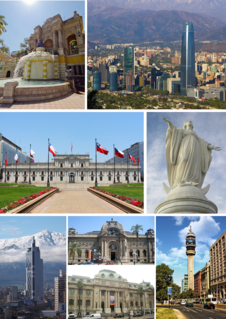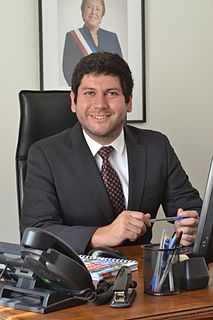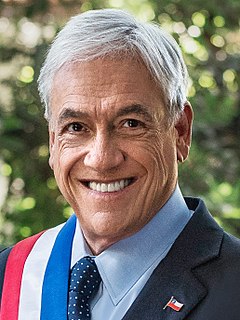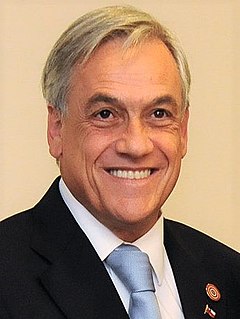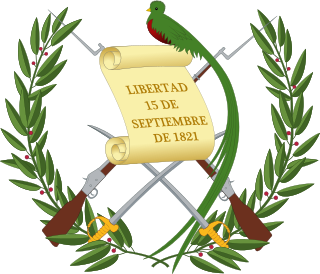| ||||||||||||||||||||||||||||||||||||||||||||||||||||||||
Presidency of the Republic All of the 120 seats in the Chamber of Deputies 20 out of 38 seats in the Senate | ||||||||||||||||||||||||||||||||||||||||||||||||||||||||
|---|---|---|---|---|---|---|---|---|---|---|---|---|---|---|---|---|---|---|---|---|---|---|---|---|---|---|---|---|---|---|---|---|---|---|---|---|---|---|---|---|---|---|---|---|---|---|---|---|---|---|---|---|---|---|---|---|
| ||||||||||||||||||||||||||||||||||||||||||||||||||||||||
 Second round result per commune | ||||||||||||||||||||||||||||||||||||||||||||||||||||||||
| ||||||||||||||||||||||||||||||||||||||||||||||||||||||||
| ||
 |
|---|
| This article is part of a series on the politics and government of Chile |
| Comptroller General |
| Constitutional Court |
|
General elections were held in Chile on 17 November 2013, including presidential, parliamentary and regional elections. Voters went to the polls to elect:

Chile, officially the Republic of Chile, is a South American country occupying a long, narrow strip of land between the Andes to the east and the Pacific Ocean to the west. It borders Peru to the north, Bolivia to the northeast, Argentina to the east, and the Drake Passage in the far south. Chilean territory includes the Pacific islands of Juan Fernández, Salas y Gómez, Desventuradas, and Easter Island in Oceania. Chile also claims about 1,250,000 square kilometres (480,000 sq mi) of Antarctica, although all claims are suspended under the Antarctic Treaty.
Contents
- Timeline
- Presidential primaries
- Presidential candidates
- Unsuccessful candidacies
- Opinion polls for presidential race
- First-round scenarios
- Second-round scenarios
- Presidential campaign
- Debates
- Results
- President
- Senate
- Chamber of Deputies
- Regional boards
- Reactions
- Analysis
- References
- External links
- A President of the Republic to serve a four-year term.
- Twenty out of 38 members of the Senate to serve an eight-year term in the National Congress.
- The full 120 members of the Chamber of Deputies to serve a four-year term in the National Congress.
- The full 278 members of the regional boards to serve a four-year term.

The President of Chile, officially known as the President of the Republic of Chile is the head of state and the head of government of Chile. The President is responsible for both the Chilean government and state administration. Although its role and significance has changed over the history of Chile, as well as its position and relations with other actors in the national political organization, it is one of the most prominent political figures. It is also considered as one of the institutions that make up the "Historic Constitution of Chile", and is essential to the country's political stability.

The Senate of the Republic of Chile is the upper house of Chile's bicameral National Congress, as established in the current Constitution of Chile.
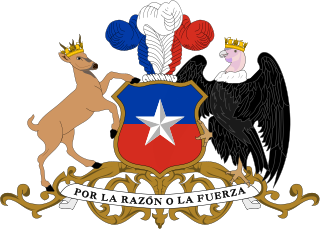
The National Congress of Chile is the legislative branch of the government of the Republic of Chile.
All the newly elected authorities began their terms on 11 March 2014.
In the presidential election, former president Michelle Bachelet fell short of the absolute majority needed for an outright win. In the runoff election, held on 15 December, she beat former senator and Minister of Labor Evelyn Matthei with over 62% of the vote, with turnout significantly lower than in the first round.

Verónica Michelle Bachelet Jeria is a Chilean politician who served as President of Chile from 2006 to 2010 and again from 2014 to 2018, the first woman to occupy the position. After leaving the presidency in 2010 and while not immediately reelectable, she was appointed the first executive director of the newly created United Nations Entity for Gender Equality and the Empowerment of Women. In December 2013, Bachelet was reelected with over 62% of the vote, bettering the 54% she obtained in 2006. She was the first President of Chile to be reelected since 1932.

Evelyn Rose Matthei Fornet is a Chilean politician who served as Minister of Labor and Social Security under Chilean President Sebastián Piñera until July 2013. She was the Independent Democrat Union Party's nominee for President of Chile in the 2013 elections. Today she is the mayor of Providencia, her term being 2016-2020.
In the parliamentary elections, the New Majority coalition (backing Bachelet's candidacy) won back control of both chambers of Congress, winning 12 of the 20 contested seats in the Senate, for a total of 21 out of 38 total seats, and 67 of the 120 seats in the Chamber of Deputies.

The Honourable Chamber of Deputies of the Republic of Chile is the lower house of Chile's bicameral Congress. Its organisation and its powers and duties are defined in articles 42 to 59 of Chile's current constitution.
These were the first presidential and parliamentary elections in which all eligible voters were automatically enrolled, and where voting was no longer mandatory. Members of the regional boards were directly elected for the first time.





